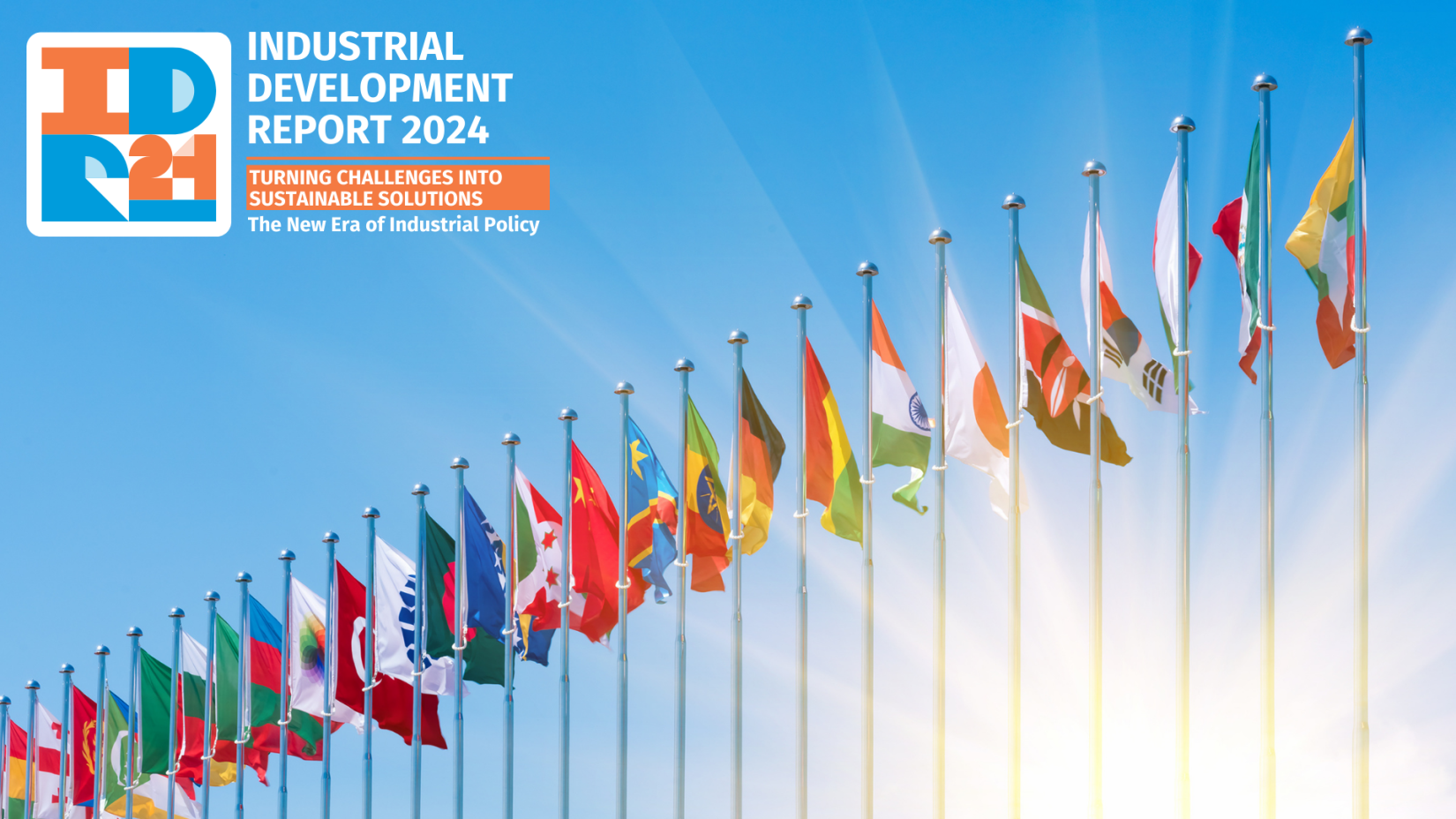Global UN report underlines Indonesia’s potential in Green Growth
01 July 2024
---

Indonesia’s natural deposits of critical minerals such as nickel, with Indonesia providing more than 55% of the global supply, are vital for electric vehicle batteries and carbon storage. Therefore, Indonesia plays a key role in the world’s efforts on decarbonization and the global energy transition. The low carbon development initiative is among the global topics covered by the Industrial Development Report 2024, published by the United Nations Industrial Development Organization (UNIDO) last week.
The report, titled ‘Turning Challenges into Industrial Solutions: The New Era of Industrial Policy,’ commends Indonesia for pursuing a green industrial policy in manufacturing and services. The country’s achievement is advancing in reducing energy consumption with the support of technical assistance from development partners, including UNIDO.
Global industrial trends: towards increased sustainability
The report demonstrates the transformative potential of modern industrial policies to offer novel solutions to global challenges, from resource scarcity and climate change to widening socioeconomic disparities and a growing population. It notes that the industrial sector already plays a pivotal role in delivering sustainable development solutions, with industrial firms holding around 60% of all green patents worldwide.
The recipe for sustainable industrialization involves combating climate change, promoting economic growth, and generating millions of decent jobs while leveraging cutting-edge technologies.
According to the report, the manufacturing sector significantly contributes to employment, innovation, and the green transition. On average, each manufacturing job creates more than two additional jobs in other sectors of the economy.
The report states that industrialization requires investments, skills, technologies, coordinated efforts, and well-designed policies. New industrial policies include these key elements:
- They must align with the Sustainable Development Goals (SDGs).
- They should be collaborative, because modern challenges are interconnected and complex, requiring close partnerships among all stakeholders including the public and private sectors.
- They should be forward-looking, considering ongoing megatrends such as the energy transition, the Fourth Industrial Revolution (4IR), global rebalancing towards developing countries, and demographic transition.
- They should promote collaboration and be regionally coordinated to mitigate tensions and unlock potential economies of scale.
The report finds that global progress towards industry-related SDGs remains slow, especially in developing countries that lag on innovation, clean energy, and decent jobs. It identifies several opportunities for catching up. These include:
- generating the energy, materials, and components needed for the energy transition,
- using 4IR technologies to boost competitiveness,
- attracting relocating foreign direct investment (FDI),
- focusing on producing goods in high demand due to global demographic and technological trends.
The Asia-Pacific region is set for growth but faces challenges, especially for Pacific islands, least developed countries and landlocked nations. As highlighted in the report, these countries require particular attention and policies to address issues related to climate change, fiscal budget limitations, and technical assistance. Emerging strong industrial capabilities have positioned Asia exceptionally well to develop new industrial clusters, particularly in electric mobility.
“UNIDO stands ready to continue to provide policy advice to the Government of Indonesia to help the country fulfill its potential and avoid the middle-income traps through industrial innovation and the creation of decent jobs,” said Marco Kamiya, UNIDO Representative in Jakarta.







